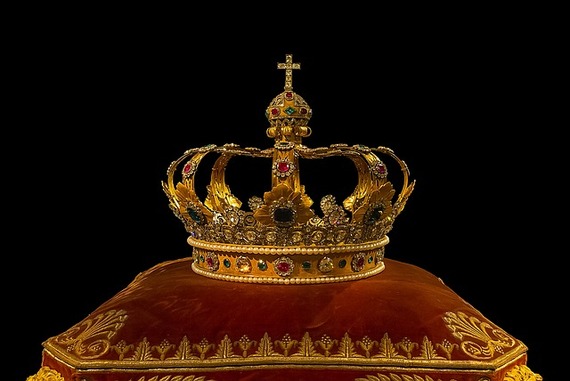"The great thing about humans is that we get to do whatever we want - we get to lord it over nature. After all, God gave us dominion, right?" Well, maybe yes and maybe no. It turns out that God's idea of kingship and ours differ radically from one another. I believe that this difference in understanding lies at the heart of the environmental crises we face today.
Why is this? First, humans and nature are in this together. We all form a community of creation. As Walter Burghardt puts it in Christ in Ten Thousand Places:
Salvation as preached in Scripture takes place within a single, all-embracing community: God, people, earth.
The bible scholar Walter Brueggemann points out in his book, The Land, that all God's covenants with humans involve three parties: God, humans, and the land. The history of the Hebrew people reveals the significance of this three-way relationship. When the people act justly toward each other and the land, obeying God's laws, both they and their land prosper. However, when the people fail to do so, both they and the land suffer. Drought, pestilence, war and disease all stem from a lack of compassion whereas righteous behavior brings prosperity to people and earth.
As Christians we talk about Jesus as king, lord and master, all words that we associate with absolute power. But what sort of kingship does Jesus model for us? Isaiah's Suffering Servant immediately comes to mind, someone who cares for his people so much that he takes upon himself all its shortcomings and failings in order to make it whole. Jesus similarly washes his disciple's feet, something only a servant would do, telling his disciples that the truly great are those who humble themselves for the sake of others. Jesus revealed this fundamental servanthood in his very flesh inasmuch as we believe that he is "God with us," the infinite God who stooped to become one with all of creation by becoming human. Jesus models a king passionate about communion and care.
But does all this have anything to do with the Old Testament view of kingship, we might ask? Genesis, after all, was written long before Jesus. And the Hebrew kings often were a pretty oppressive bunch. Well, it turns out God doesn't like kings very much. When the Hebrew people approached Samuel, their leader (or "judge"), asking him to anoint a king for them, God warned them through Samuel that kings would be harsh taskmasters - having a king other than God was a big mistake.
Knowing that they would make this request, God earlier laid out what a king should be if they decided they had to have one. God stipulated that any king for his people should be part of the community, a kinsman. The king should not possess lots of horses because kings used horses for war, not work. God stated that this prospective king should avoid taking foreign wives lest they lure him away from God, in whose name he ruled. Finally, God demanded that the king should read the Torah, or law, all the days of his life so that he might always rule as God would rule. The king, in other words, served as God's viceroy for the benefit of his people, not for the king's.
How does this relate to the environment? Biblical scholars point out that the creation story in Genesis 2:4-25 tells us that humans must care for (abad) and cultivate (shamar) the Garden. The former word means "to serve," even to the point of "being a slave to." The latter word, often translated "to keep" or care for, also means to watch or preserve. When God gives humans dominion, then, God charges them to slavishly watch over and care for the community of creation as its servants.
Unfortunately, it appears that we humans have not paid much attention to what God has tried to tell us, anymore than Israel's kings did. We love to talk about controlling nature and attempt to do so in almost every aspect of our lives. Today's concerns about increasingly violent weather, declining soil fertility, floods, drought, and pandemics tell us that maybe the biblical vision has something to say to us. We, indeed, can do anything we want...but we may not like what happens when we do.

